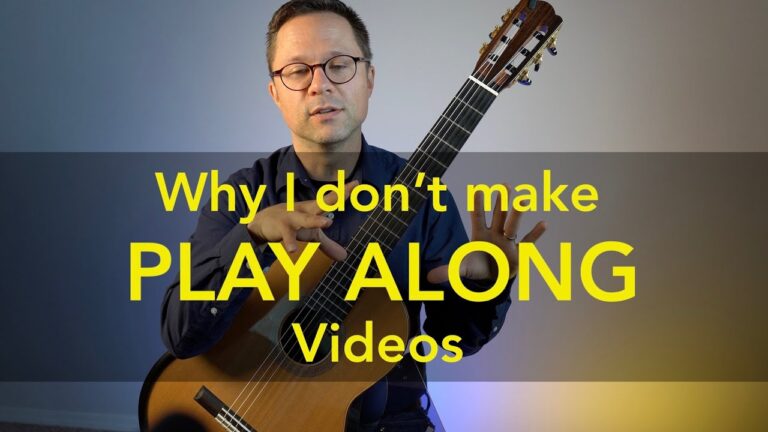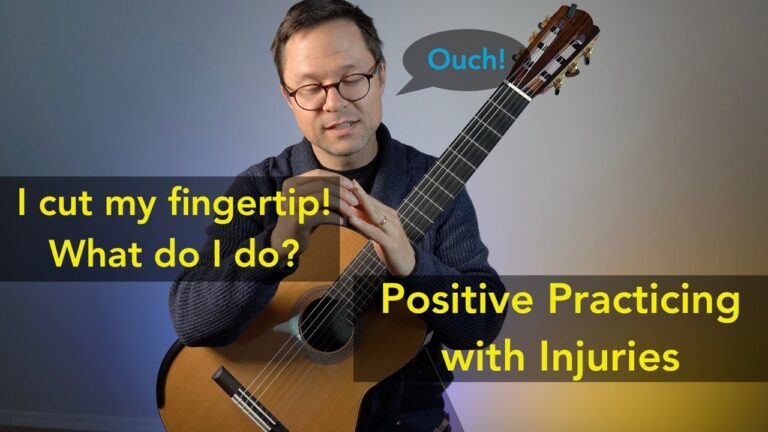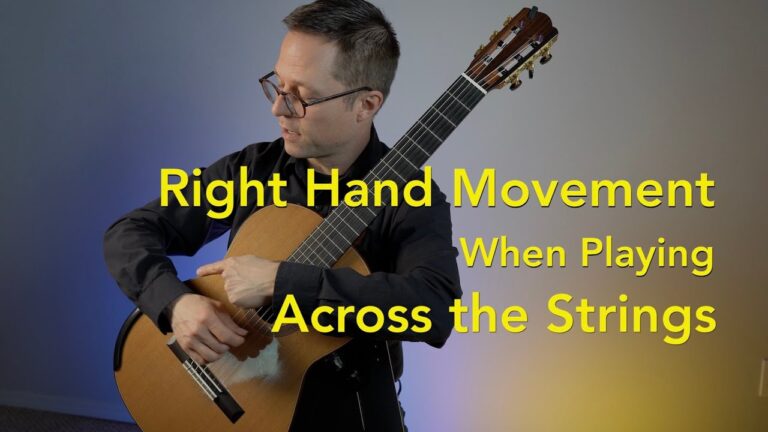As guitarist Scott Tennant states in his technique book “there’s no substitute for preparation.” That is true, you certainly don’t want to perform something you haven’t practiced well. The more you prepare the better the performance will go. However, there’s more to combatting nervousness than just practicing endlessly. You need to address the problems you face on stage. Furthermore, there are ways of playing on-stage and in the practice room that can differ greatly and affect your performance. Here are some suggestions that I’ve come up with for my students:
Practicing Performance
Think of the university music student. The student has private lessons but also masterclass once a week and maybe even an additional performance class. So, a few times a week the student is playing for other people rather than just practicing alone in a room. Therefore, the student gets practice at performing and discovers regularly how it feels to make adjustments in order to have a successful performance. They learn to play in a way suited to performance.
So, just as you practice your pieces, you need to practice performing. Masterclasses are best for this because you get to perform and then try out parts of it again as the teacher instructs you. So I recommend you setup a performance class with friends or other students. There are often performance groups at music school but even a group of like-minded adults or youth could simply set up a time to meet once in awhile to perform for each other. Ask a local teacher if they have students who might want to join you.
Have a warm-up routine (don’t freak yourself out)
Right before a performance try not to run your piece. If you have prepared you don’t need to practice it just before you go on-stage. If you make a mistake backstage you might get freaked out thinking whether that is going to happen on-stage.
Make ten minute long technique routine to repeat pre-concert. Make sure your routine warms up all the different aspects of technique as well as some expressive exercises as well. Then just repeat the routine until it’s time to perform. At the very least this will give you something to do besides sitting back-stage freaking out. Early in the day I like to run my concert material slowly and securely to give myself some confidence. Otherwise, I just play my routine. You can consider my 20 Favorite Exercises For Classical Guitar for warmup ideas.
Practice damage control in performance
If you practice in the same way every time you practice playing a piece you could be hurting your performance. Why? Because the way you feel on stage might be different than the practice room so therefore you need to be flexible to making changes on the spot while performing. You need to adapt to the situation. For example:
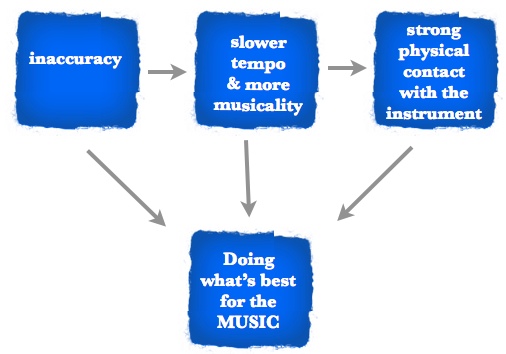
So, in the above diagram you can see some responses to performance anxiety. Likewise, the below outlines some possible responses to shaking hands. Regardless of the problem you need to be flexible to adjust to the situation. Therefore, you need to practice the responses. For example, be comfortable with a slower tempo. you don’t it to feel weird if you have to slow down mid-performance
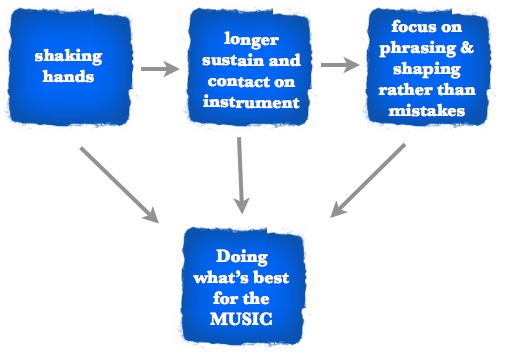
Change the way you practice your performance pieces
- Don’t practice the same way all of the time.
- Practice your pieces slow, fast, and at medium tempos.
- Practice one time through with an ultra strong sense of pulse.
- Practice once through with over-exaggerating the dynamic shaping and phrasing.
- Practice in the way you think a performance will feel. That is, you may need to sacrifice some musical elements in order to achieve more stability in your performance.
- Don’t practice in the ideal way. Practice the piece in a way you feel you will be able to handle for your skill level.
The idea is to be able to flick a switch in your brain and suddenly be able to tackle a different musical problem. So, if you get nervous and a musical element starts to suffer you can flick that switch and you’ll feel the familiar new tempo because you practiced the piece in multiple ways.
Stay positive and improve
- Remember that you are not the trying to be the greatest musician of all time, instead, you are simply sharing your efforts. More importantly, you are sharing the music.
- Remember that some performances go better than others. It’s the same for professionals so don’t be so hard on yourself.
- Treat every performance as a learning experiment. Make adjustments to the music to match your mood.
- If it didn’t go well, write down what went wrong and address the issue in your practice session. For example: if your nerves affected your pulse or rhythm than you may need to practice bringing out the secure pulse more in your practice sessions. Maybe the metronome will help?
- Remember that you are forever a STUDENT of the guitar and music. Unless you are telling your audience that you are the greatest musician ever then they will likely be nothing but supportive of any kind of performance you can accomplish. Just be humble and don’t apologize for mistakes, just go with the flow and gain experience.

